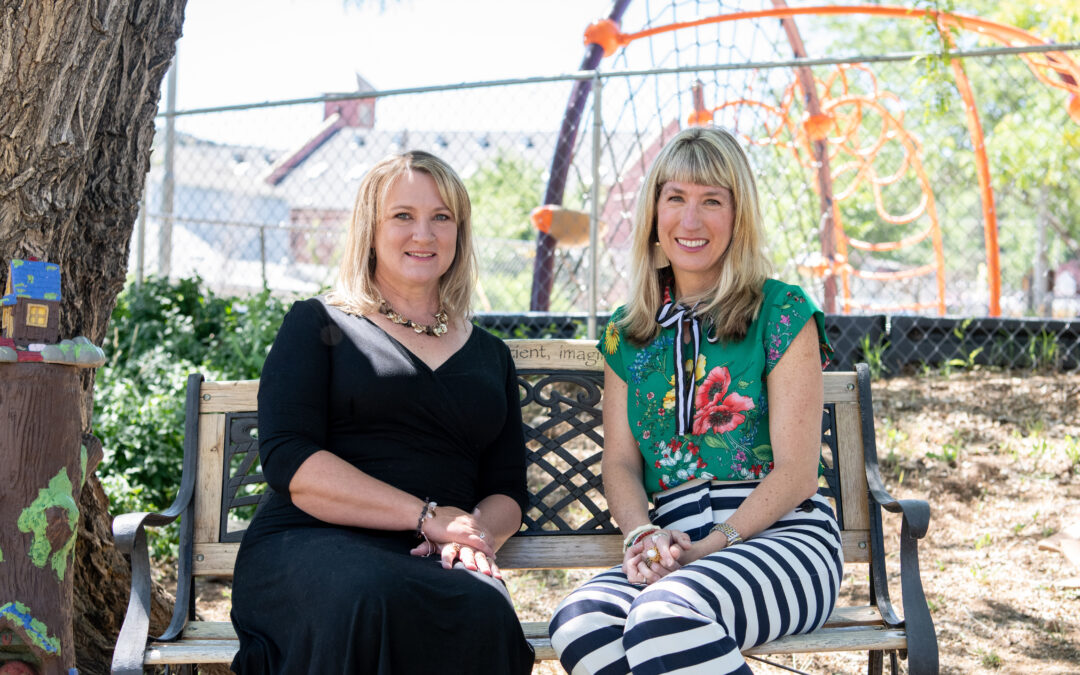Through Expeditionary Learning, La Tierra Engages Students through Real-World Connections … and Inspires Them to Create Positive Change
By Hilary Dartt
From the outside, it’s immediately apparent that La Tierra Community School is different. A gathering of purple flowers greets visitors who come through the main gate, and the office feels like home—in part because the building is actually a charming house in an established neighborhood just two blocks from the heart of downtown Prescott.
A thriving garden runs alongside the walkway, and to the left, a brightly colored, modern-looking playground offers more cheer.
According to the school’s Operations Director, Julie Jongsma, and Academic Director Rhette Buller, its unique appearance is by design, and reflects a unique philosophy … one that benefits students and the community.
La Tierra, a public charter school, is based on Expeditionary Learning, a project-based, active educational model that fosters relevant connections for students through learning expeditions. Teachers value children’s sense of curiosity and discovery as well as their ability to think critically, reflect upon their world, and promote positive change.
Expeditionary Learning takes a multi-faceted approach to curriculum and nurtures each student socially and emotionally as well as academically.
Julie, who has a background as a social worker in healthcare, began working at La Tierra after her daughter began attending. She said the Expeditionary Learning model teaches students to think outside the box.
“It’s not just, ‘We’re going to teach you this lesson,’” she said. “Kids learn how to think about a problem, instead of us telling them, ‘This is how we want you to think about it.’”
“We show them a way,” said Rhette, who spent several years teaching in local public schools before taking a job at, and falling in love with, La Tierra, “but it’s not the way.”
The school’s guiding principles state that learning at La Tierra is meaningful, contemporary, collaborative, challenging, public, and active.
Expeditions—thematic units of study based on social studies and science—meet state standards and empower students to delve deeply into and experience each topic.
Applying school lessons out in the real world is one important component of Expeditionary Learning. Students at La Tierra often do field work (studying ant hills throughout the year, and traveling through an ant colony set up in the classroom, for example) and each class takes an annual camping trip.
While the academic aspects of La Tierra are interactive and engaging, the social and emotional learning carries equal importance, Rhette and Julie said.
“A big part of Expeditionary Learning is social-emotional,” Rhette said. “Our teachers start each day by standing at the gate, looking students in the face [as they arrive], and giving them a hug. Our third-grade teacher, Mr. Dave, greets each student in a beautiful, meaningful way so they feel loved.”
To that end, school staff members use conscious discipline, a collection of social- and emotional-based classroom management strategies that, Rhette said, “teaches kids how to resolve conflict with their peers.”
“What we do so well here,” Rhette said, “is the whole child. … It’s really amazing because you get those kids who struggle at other schools and they come here and they find a home. They have a tribe.”
La Tierra Community School is home away from home to about 120 students in kindergarten through seventh grade, and 16 staff members.
To learn more, visit www.latierracommunityschool.org or call 928.445.5100.

